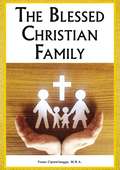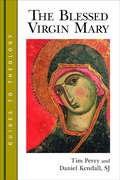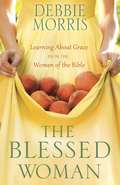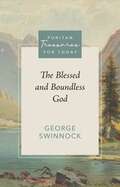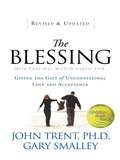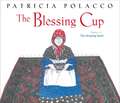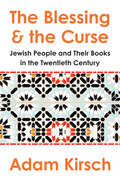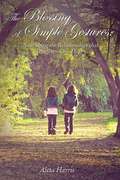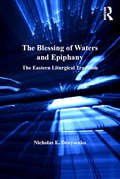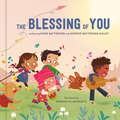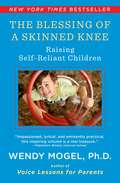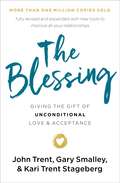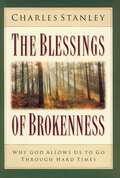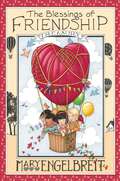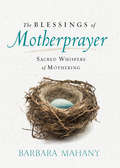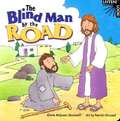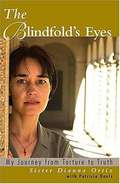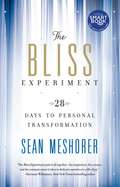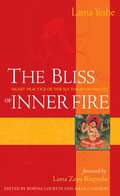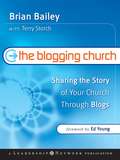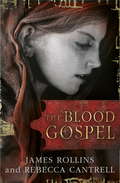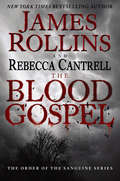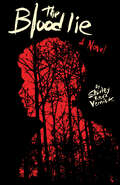- Table View
- List View
The Blessed Christian Family
by Yunus CiptawilanggaFamily is a unit created by God Himself. Since the very beginning when God created man, He planned to make man as the object of His love. This book explains what kind of people are blessed with a good family and what kind of blessed family God promised.
The Blessed Trinity and Our Christian Vocation
by James SociasThe Blessed Trinity takes an in-depth look at the mystery of the Blessed Trinity as revealed in Sacred Scripture. Analyzing the Divine Life of God--Father, Son, and Holy Spirit--it presents a detailed look at the Person of Jesus Christ as the fulfillment of Divine Revelation, the role of the * Holy Spirit in the Christian life, and how we can know the Father through the Son. It also examines the Christian vocation and how God invites us to be in communion with him.
The Blessed Virgin Mary (Guides to Theology)
by Tim Perry Daniel KendallThis volume provides a concise, nontechnical historical introduction to the church's thinking about Mary, the mother of Jesus. The first part of the book sketches the development of Marian thought from the second century to the twentieth century. The second part contains an annotated bibliography of the most important and accessible English-language works on Mary.Tim Perry, an evangelical Anglican priest, and Daniel Kendall, a Roman Catholic Jesuit priest, have joined across the Reformation divide to provide an irenic, balanced volume for students and general readers interested in this most remarkable woman and the ways in which she has shaped Christian thought.
The Blessed Woman: Learning About Grace from the Women of the Bible
by Debbie MorrisDiscover the True Meaning of Being Blessed It's not easy being a woman. The demands and expectations of us, and those we place on ourselves, can be overwhelming. While trying to navigate this thing called "life," have you ever longed for a close friend, confidant, or mentor to walk alongside you and encourage you in Biblical womanhood? Debbie Morris did. And yet even as a young minister's wife, she found herself without someone to fill this all-important role. So she turned to the Bible. Biblical women such as Eve, Sarah, and Miriam had always fascinated her. But now they also became her friends, sisters, and teachers. Through their stories, the Holy Spirit revealed how their lives--both joys and struggles--weren't that much different from ours today and how they can teach women today to be a grace-filled, life-giving woman of God. In The Blessed Woman, Debbie invites you to learn from these women as well. As she shares her own stories and the stories of discerning women in the Bible, she addresses topics such as overcoming insecurity, finding purpose, establishing priorities, letting go, and waiting. The Blessed Woman reminds us how God longs for every woman to experience His tenderness--and to know the true meaning of being blessed.
The Blessed and Boundless God
by George SwinnockFrom the psalmist's assertion that no one in heaven or earth is like God, George Swinnock derives his principal doctrine: namely, God is incomparable. Throughout The Blessed and Boundless God, he proves his doctrine by demonstrating God's incomparableness in His being, attributes, works, and words. Swinnock is a pastor-theologian who views theology as the means by which we grow in acquaintance with God and, consequently, in godliness. Therefore, he carefully applies his doctrine by demonstrating how God's incomparableness informs, counsels, and comforts us. Read this book prayerfully, thoughtfully, and expectantly, keeping in mind Swinnock's simple conviction that when we take the incomparable God as our God, we are incomparably blessed.
The Blessing
by Gary Smalley John TrentExplains how the biblical gift of "the blessing" is the key to one's self-worth and emotional well-being. Every human needs the gift of "the blessing"--the unconditional love and approval that comes from a healthy relationship with one's parents. In this update to the best-selling classic The Blessing, coauthors John Trent and Gary Smalley offer a fresh perspective on this life-changing gift with solid, practical advice on how to be a blessing as well as how to insure that your parents, spouse, and children all feel the security of family approval. The Blessing powerfully communicates biblical truths on how to instill self-worth and emotional well-being into others based on these five essential elements: Meaningful touch A spoken message Attaching high value Picturing a special future An active commitment No matter the age, the approval of our parents affects how we view ourselves and how we relate to others. So what if we've missed it? The final chapters explain what happens to children who do and how they can learn to live apart from the blessing.
The Blessing Cup (Paula Wiseman Books)
by Patricia PolaccoA New York Times bestseller <P><P>A bond of love unites a family throughout generations in this companion to the beloved and bestselling classic The Keeping Quilt. <P><P>As a young Russian Jewish girl in the early 1900s, Anna and her family lived in fear of the Czar’s soldiers. The family lived a hard life and had few possessions—their treasure was a beautiful china tea set. A wedding gift to Anna’s parents, the tea set came with a wish that “Anyone who drinks from this will have blessings from God. They will never know a day of hunger. Their lives will always have flavor. They will know love and joy and they will never be poor.” <P><P>When Anna’s family leaves Russia for America, they bring the tea set and its blessings. A source of heritage and security, the tea set helps Anna’s family make friends and find better lives in America. A cup from the tea set—The Blessing Cup—became an anchor of family history, and it remains a symbol of lasting love more than a century later. <P><P>Lexile Measure: 740L
The Blessing and the Curse: Jewish People And Their Books In The Twentieth Century
by Adam KirschAn erudite and accessible survey of Jewish life and culture in the twentieth century, as reflected in seminal texts. Following The People and the Books, which "covers more than 2,500 years of highly variegated Jewish cultural expression" (Robert Alter, New York Times Book Review), poet and literary critic Adam Kirsch now turns to the story of modern Jewish literature. From the vast emigration of Jews out of Eastern Europe to the Holocaust to the creation of Israel, the twentieth century transformed Jewish life. The same was true of Jewish writing: the novels, plays, poems, and memoirs of Jewish writers provided intimate access to new worlds of experience. Kirsch surveys four themes that shaped the twentieth century in Jewish literature and culture: Europe, America, Israel, and the endeavor to reimagine Judaism as a modern faith. With discussions of major books by over thirty writers—ranging from Franz Kafka to Philip Roth, Elie Wiesel to Tony Kushner, Hannah Arendt to Judith Plaskow—he argues that literature offers a new way to think about what it means to be Jewish in the modern world. With a wide scope and diverse, original observations, Kirsch draws fascinating parallels between familiar writers and their less familiar counterparts. While everyone knows the diary of Anne Frank, for example, few outside of Israel have read the diary of Hannah Senesh. Kirsch sheds new light on the literature of the Holocaust through the work of Primo Levi, explores the emergence of America as a Jewish home through the stories of Bernard Malamud, and shows how Yehuda Amichai captured the paradoxes of Israeli identity. An insightful and engaging work from "one of America’s finest literary critics" (Wall Street Journal), The Blessing and the Curse brings the Jewish experience vividly to life.
The Blessing of Simple Gestures: Nourishing The Relationships That Brighten Our Days
by Aleta HarrisThe Blessing of Simple Gestures is a delightful walk into a world of encouragement – both our desire to receive it and also to share it with others. You can change your world, beginning in your sphere of influence, by letting these ideas open doors to enrich the relationships that you hold close.The truth is that we often neglect to show gratitude for or to nourish the relationships that God has brought into our journey through life. The sections of this book show how to incorporate a common item or thought to create an indelible, positive impression of hope or joy or appreciation. In a world where the message is so often negative, we need to hear a word of encouragement and hope. We need to know that we are not alone in this journey of life and that it is the relationship of friends and family that make each step an enjoyable one.So, for those of you who find it a bit of a challenge to know just how to say what is in your heart, let this book act as the catalyst that will launch you into the world of life-changing encouragers. You will find that your heart will also be encouraged.
The Blessing of Waters and Epiphany: The Eastern Liturgical Tradition (Liturgy, Worship and Society Series)
by Nicholas E. DenysenkoThis book examines the historical development of the blessing of waters and its theology in the East, with an emphasis on the Byzantine tradition. Exploring how Eastern Christians have sought these waters as a source of healing, purification, and communion with God, Denysenko unpacks their euchology and ritual context. The history and theology of the blessing of waters on Epiphany is informative for contemporary theologians, historians, pastors and students. Offering important insights into how Christians renew Baptism in receiving the blessed waters, this book also proposes new perspectives for theologizing Christian stewardship of ecology in the modern era based on a patristic liturgical synthesis. Denysenko presents an alternative framework for understanding the activity of the Trinity, enabling readers to encounter a vision of how participants encounter God in and after ritual.
The Blessing of You
by Mark Batterson Summer Batterson DaileyThrough engaging rhyme, pastor and bestselling author Mark Batterson and his daughter encourage young children to discover the joys of both counting their blessings and being a blessing to others.Count your blessings two by two— and bless the world with the blessing of YOU!God&’s blessings can be found all around us, and even young children can learn to see and appreciate these gifts—from the smell of freshly baked cookies to the joy of climbing a tree! But God doesn&’t just intend for us to receive blessings; He also wants us to bless others.With whimsical rhyme and delightful illustrations, The Blessing of You helps young children recognize signs of God&’s generosity and goodness in their everyday lives and encourages them to pass on those blessings by being their own wonderful, God-created selves.
The Blessing of a Skinned Knee: Using Timeless Teachings to Raise Self-Reliant Children (Compass Ser.)
by Wendy MogelIn the trenches of a typical day, every parent encounters a child afflicted with ingratitude and entitlement. In a world where material abundance abounds, parents want so badly to raise self-disciplined, appreciative, and resourceful children who are not spoiled by the plentitude around them. But how to accomplish this feat? The answer has eluded the best-intentioned mothers and fathers who overprotect, overindulge, and overschedule their children's lives. Dr. Mogel helps parents learn how to turn their children's worst traits into their greatest attributes. Starting with stories of everyday parenting problems and examining them through the lens of the Torah, the Talmud, and important Jewish teachings, The Blessing of a Skinned Knee shows parents how to teach children to honor their parents and to respect others, escape the danger of overvaluing children's need for self-expression so that their kids don't become "little attorneys," accept that their children are both ordinary and unique, and treasure the power and holiness of the present moment. It is Mogel's singular achievement that she makes these teachings relevant for any era and any household of any faith. A unique parenting book, designed for use both in the home and in parenting classes, with an on-line teaching guide to help facilitate its use, The Blessing of a Skinned Knee is both inspiring and effective in the day-to-day challenge of raising self-reliant children.
The Blessing: Giving the Gift of Unconditional Love and Acceptance
by Gary Smalley John Trent Kari Trent StagebergChildren of every age long for the gift of The Blessing—the unconditional love and approval that comes from a healthy relationship with their parents. This life-changing gift for Christian parents and their children, essential for instilling a deep sense of self-worth and unshakable emotional well-being, contains five essential elements:meaningful toucha spoken messageattaching high valuepicturing a special futurean active commitmentOffering solid, practical advice and a fresh perspective on making this gift a bigger part of our families, The Blessing powerfully communicates these biblically based elements as necessary to prepare children for positive future relationships, including their relationship with a loving God.New to this updated edition aregiving The Blessing to others in your circle of influence,practical application tools and stories of how this is lived out,insight and help for those who didn’t receive The Blessing,and how to create a lifestyle of blessing others.
The Blessings of Brokenness: Why God Allows Us to Go Through Hard Times
by Charles StanleyPerhaps you've already experienced circumstances so shattering you may wonder today whether it's even possible to pick up the pieces. And maybe you can't. But God can -- and the good news is, he wants to reassemble the shards of your life into a wholeness that only the broken can know.
The Blessings of Friendship Treasury
by ZondervanThe Blessings of Friendship, created by New York Times bestselling author and artist Mary Engelbreit, is a playful and poignant treasury of poetry, Bible verses, and quotes that celebrate the joy of friendship. Children will learn from timeless sayings and poems what it means to be a friend—helping, encouraging, listening, sharing with, and loving one another. Colorful and whimsical illustrations bring these words to life, as children learn the value of friendship. Verses from the Bible give us instruction on putting others above ourselves, loving each other, and being kind to one another. This book will make you smile with each turn of the page, remembering old friends and new friends alike.
The Blessings of Motherprayer: Sacred Whispers of Mothering
by Barbara MahanyInspired by her book Motherprayer: Lessons in Loving, Barbara Mahany presents The Blessings of Motherprayer a lovely gift book featuring wisps of inspirational writings to carry you through the day, the hour, and whatever comes your way. The book is a patchwork quilt of inspiration and prayer, with a smidge of recipes. These meditative notes on mothering magnify the wonders and wisdoms of loving with a wide-open heart. They reveal that no matter which way you look at the motherhood role and parenthood, it is essential that every stitch along this broadcloth of hope, faith, and unwavering trust be knotted with and held firm by prayer. The devotional is rich in reminders to slow time, and savor the blessing of each and every hour of each and every season of mothering, be it the rare quietude of time alone, or amid the cacophony of the daily bustle. Discover powerful quotes, heart-scripted prayer, and stories that invite you to pay attention, cradle your loved ones in prayer, and see the sacred lessons in loving. Be inspired to view life through a magnifying lens in search of God, to probe the nooks and crannies of our everyday, and find opportunities to infuse and focus on the holy in our extraordinary ordinary day-to-day.
The Blessings of Weekly Communion
by Kenneth W. WietingAn indepth study of the reasons for offering weekly communion in the LutheranChurch and includes a history of the role and meaning of this sacrament from the time of Christ to the present day.
The Blind Man By the Road (Listen! Look!)
by Gloria Mcqueen StockstillIntroduces the story of Jesus' healing of the blind man, encouraging active learning skills such as listening and looking.
The Blindfold's Eyes: My Journey from Torture to Truth
by Patricia A. Davis Dianna OrtizThe searing memoir of an American nun abducted and tortured in Guatemala, Whose ongoing search for healing and justice shows that the human spirit is a force stronger than violence and fear. Even more timely now for its insights into the aftermath of torture.
The Bliss Experiment: 28 Days to Personal Transformation
by Sean MeshorerHAPPINESS IS GOOD. BLISS IS BETTER. We have a higher standard of living and more ways to instantaneously fulfill every desire than ever before. Then why are we unhappy? Because happiness isn’t what we really want. Happiness alone is fleeting and not deeply transformative. Bliss is a spiritual state where happiness, profound meaning, and enduring truth converge. With bliss comes an unshakable joy, a practical wisdom, and a lasting solution to our personal and planetary sufferings. Based on a successful seminar taught by Sean Meshorer, a leading spiritual teacher and New Thought minister, The Bliss Experiment contains dozens of stories of real people learning from everyday situations, backed by more than five hundred scientific studies. This is the one essential book that distills and unifies seemingly competing practices, philosophies, religions, and psychologies. Meshorer includes exercises that have worked time and again for people from all walks of life—including him. Meshorer suffers with severe chronic pain and is able to live his life to the fullest through the practices he shares here. Bliss helps with stress, anxiety, and depression. It makes people more successful, better able to see and seize opportunities, and build or improve relationships. Give these ideas and practices twenty-eight days of dedicated attention and you will see results. You only need a moment of bliss to benefit the rest of your life. The text includes links to bonus videos of Sean Meshorer expanding on the book’s themes and demonstrating the exercises.
The Bliss of Inner Fire
by Jonathan Landaw Lama Thubten Zopa Rinpoche Robina Courtin Lama Thubten Yeshe Alisa CameronIn the classic bestseller, Introduction to Tantra, Lama Yeshe offered a profound and wonderfully clear glimpse into the sophisticated practices of Tibetan Buddhist tantra. This present book, the last major teachings of this great lama, opens up the world of advanced practices for Highest Yoga Tantra initiates in much the same way his earlier work opened up the world of tantra in general. Following Je Tsongkhapa's (1357-1419 C.E.) text Having the Three Convictions, Lama Yeshe introduces the renowned Six Yogas of Naropa, focusing mainly on the first of these six, the practice of inner fire (tummo). Mastery of inner fire quickly brings the mind to its most refined and penetrating state--the experience of clear light, an extra-ordinarily powerful state of mind that is unequaled in its ability to directly realize ultimate reality. Lama Yeshe felt that twentieth-century Westerners could easily grasp the often misunderstood ideas of this esoteric tradition: "We really need tantra these days because there is a tremendous explosion of delusion and distraction.and we need the atomic energy of inner fire to blast us out of our delusion." Lama Yeshe's aim was for his students to actually taste the experience of inner fire rather than merely gain an intellectual understanding. Lama's own realization of the transformative power of these practices comes through, inspiring his students to discover for themselves their own capacity for inexhaustible bliss.
The Blogging Church
by Brian Bailey Terry StorchThe Blogging Church offers church leaders a field manual for using the social phenomenon of blogs to connect people and build communities in a whole new way. Inside you will find the why, what, and how of blogging in the local church. Filled with illustrative examples and practical advice, the authors answer key questions learned on the frontlines of ministry: Is blogging a tool or a toy? What problems will blogging solve? How does it benefit ministry? How do I build a great blog? and Who am I blogging for?The Blogging Church is a handbook that will inspire and equip you to join the conversation.The book includes contributions from five of the most popular bloggers in the world--Robert Scoble, Dave Winer, Kathy Sierra, Guy Kawasaki, and Merlin Mann, as well as interviews with blogging pastors such as Mark Driscoll, Craig Groeschel, Tony Morgan, Perry Noble, Greg Surratt, Mark Batterson, and many more.
The Blood Gospel (Blood Gospel Book I Ser.)
by James Rollins and Rebecca CantrellWhen a devastating earthquake in Masada, Israel, reveals a tomb buried in the heart of the mountain, a trio of investigators – Sergeant Jordan Stone, a military forensic expert; Father Rhun Korza, a Vatican priest; and Dr Erin Granger, a brilliant archaeologist – are sent to explore the macabre discovery, a subterranean temple holding the crucified body of a mummified girl.
The Blood Gospel: The Order of the Sanguines Series (Order of the Sanguines #1)
by James Rollins Rebecca CantrellIn his first-ever collaboration, New York Times bestselling author James Rollins combines his skill for cutting-edge science and historical mystery with award-winning novelist Rebecca Cantrell's talent for haunting suspense and sensual atmosphere in a gothic tale about an ancient order and the hunt for a miraculous book known only as ... The Blood Gospel. An earthquake in Masada, Israel, kills hundreds and reveals a tomb buried in the heart of the mountain. A trio of investigators--Sergeant Jordan Stone, a military forensic expert; Father Rhun Korza, a Vatican priest; and Dr. Erin Granger, a brilliant but disillusioned archaeologist--are sent to explore the macabre discovery, a subterranean temple holding the crucified body of a mummified girl. But a brutal attack at the site sets the three on the run, thrusting them into a race to recover what was once preserved in the tomb's sarcophagus: a book rumored to have been written by Christ's own hand, a tome that is said to hold the secrets to His divinity. The enemy who hounds them is like no other, a force of ancient evil directed by a leader of impossible ambitions and incalculable cunning. From crumbling tombs to splendorous churches, Erin and her two companions must confront a past that traces back thousands of years, to a time when ungodly beasts hunted the dark spaces of the world, to a moment in history when Christ made a miraculous offer, a pact of salvation for those who were damned for eternity. Here is a novel that is explosive in its revelation of a secret history. Why do Catholic priests wear pectoral crosses? Why are they sworn to celibacy? Why do the monks hide their countenances under hoods? And why does Catholicism insist that the consecration of wine during Mass results in its transformation to Christ's own blood? The answers to all go back to a secret sect within the Vatican, one whispered as rumor but whose very existence was painted for all to see by Rembrandt himself, a shadowy order known simply as the Sanguines. In the end, be warned:some books should never be found, never opened--until now.
The Blood Lie
by Shirley Reva Vernick2012 Sydney Taylor Award Honor Book, 2012 Skipping Stone Honor Book. Lauren Myracle, author of Shine, calls it "a powerful-and poignant-reminder that no person can live freely until all people can live freely." Blood Lie was the winner of the 2012 Simon Wiesenthal Once Upon a World Children's Book Award.September 22, 1928, Massena, New York. Jack Pool's sixteenth birthday. He's been restless lately, especially during this season of more-times-at-the-synagogue than you can shake a stick at. If it wasn't Rosh Hashanah, then it was Yom Kippur, and if it wasn't Yom Kippur, it was the Sabbath. But temple's good for some things. It gives him lots of time to daydream about a beautiful but inaccessible Gentile girl named Emaline. And if she isn't on his mind, then he's thinking about his music and imagining himself playing the cello with the New York Philharmonic. Yup, music is definitely his ticket out of this remote whistle-stop town-he doesn't want to be stuck here one more minute. But he doesn't realize exactly how stuck he is until Emaline's little sister Daisy goes missing and he and his family are accused of killing her for a blood sacrifice.Blood Lie was inspired by a real blood libel that took place when a small girl disappeared from Massena, New York, in 1928, and an innocent Jewish boy was called a murderer."Vernick's novel is a scathing indictment of anti-Semitism...it is an important book that reminds us of the imperative need to remember lest we find ourselves repeating the horrors of the past."-Booklist"Effectively mines layers of ignorance, fear, intolerance and manipulation."-Kirkus ReviewsShirley Reva Vernick's interviews and feature articles have appeared in Cosmopolitan, Good Housekeeping, Ladies' Home Journal, and national newspapers. She also runs a popular storytelling website, storybee.org, which is used in schools and libraries all over the world. Shirley grew up in the town where the blood libel happened, as did her father, whose family was directly victimized by it.
